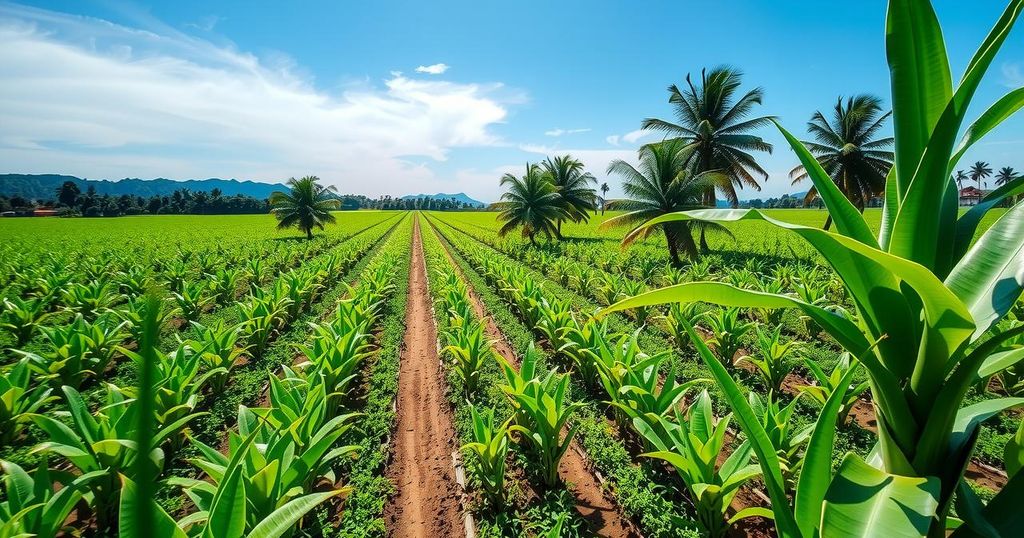Farmers in Madagascar’s Vanilla Country Confront Climate Challenges
Farmers in Madagascar’s vanilla-producing regions are struggling to adapt to climate change impacts, facing increased temperatures and rainfall variability. Despite the worsening situation, adaptation efforts remain low due to economic constraints. The study reveals the urgent need for targeted policies to support smallholder farmers and enhance their resilience in agricultural practices.
A study conducted in the villages of Sarahandrano and Mandena, located near Marojejy National Park, has found that nearly all farmers there face significant changes in temperature and rainfall, exacerbating their struggles to feed their families. Despite anticipating worsening conditions in the future, only a small fraction is making adjustments to their farming practices to adapt to the challenges posed by climate change.
The farmers primarily rely on vanilla cultivation alongside other crops like rice, bananas, and coffee, utilizing traditional tools and local water sources. Recent interviews reveal that approximately seventy-five percent of respondents reported dried-up water sources and reduced labor time due to extreme weather events, disrupting their farming routines. Wartime increases in pest populations and health concerns, such as malaria and diarrhea, were also noted by the farmers.
Surprisingly, despite these alarming developments, only one in five farmers is actively implementing adaptive strategies, such as soil enhancement techniques or altered planting schedules. This low adaptation rate is notably below observed levels in other countries. The study highlights that socioeconomic factors significantly influence farmers’ willingness to adapt; those with more resources are more likely to implement changes, while the majority continue to live in poverty, limiting their options.
Senior co-author Randall Kramer emphasizes that alternative farming practices often incur higher costs, further hindering farmers’ adaptation efforts. He advocates for policies to alleviate these costs for low-income farmers. Additionally, incorporating methods such as fruit tree planting and fish farming in rice paddies could bolster food security and pest management, according to study co-author Voahangy Soarimalala.
Farmers in Madagascar also contend with cyclones and storms that threaten their crops and livelihoods. The situation is not unique to northeast Madagascar; other regions like Andringitra are witnessing unprecedented climatic changes. Data reveal an upward trend in average temperatures coupled with decreased precipitation across Madagascar, intensifying the challenges faced by small-scale farmers.
In response to these findings, researchers plan to broaden their survey to thirty-four villages to verify patterns and impacts of agricultural adjustments made by farmers. This initial analysis serves as a foundation for further exploration, emphasizing the need for farmers to embrace flexibility and resourcefulness amidst ongoing climate uncertainties. Funding for this research was provided by the joint NIH-NSF-NIFA Ecology and Evolution of Infectious Disease Program.
The study highlights the urgent challenges faced by Madagascar’s farmers due to climate change, revealing their limited adaptation efforts amidst worsening conditions. The findings indicate a significant need for enhanced support and policies to foster adaptive strategies, particularly for those living in poverty. Future research will expand on this initial work to better understand these dynamics and explore potential solutions to improve farmers’ resilience in the face of climate change.
Original Source: today.duke.edu




Post Comment